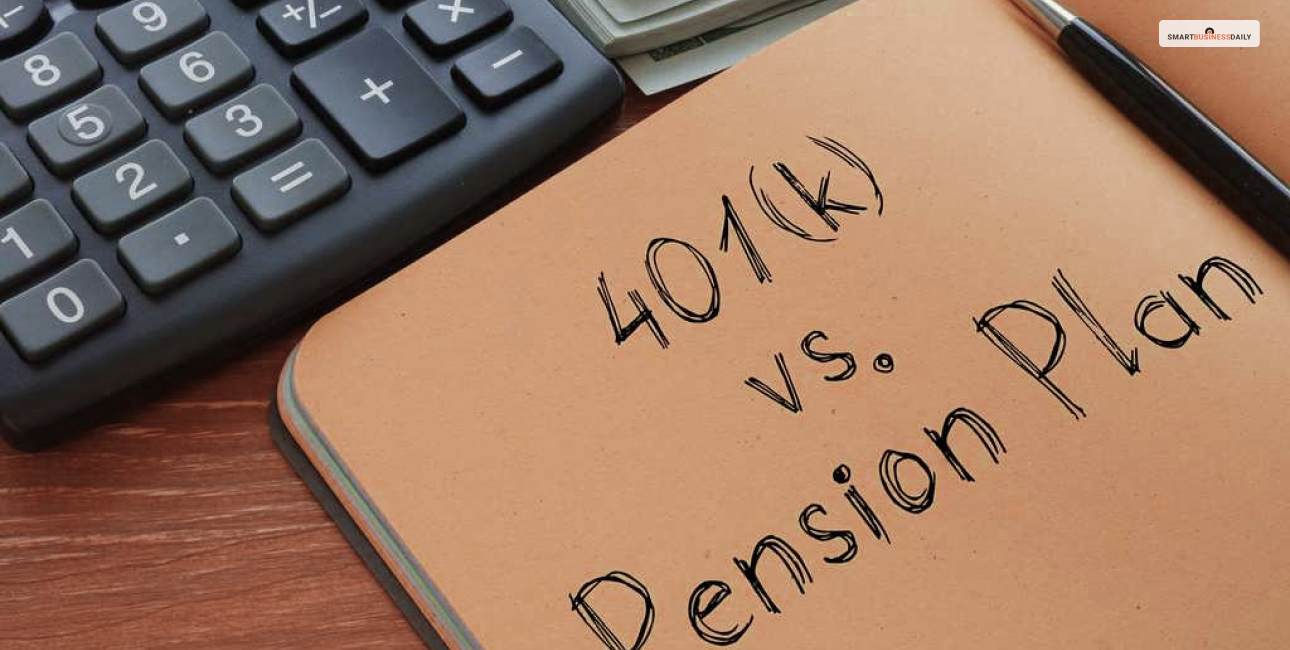Pension vs 401k: Pros & Cons, Similarities & Differences
5 Mins Read
Published on: 30 August 2023
Last Updated on: 09 September 2024

toc impalement
It is wise to keep our finances managed at all times. This also includes managing finances for the future when a working professional finally retires. Indeed there are different ways to secure retirement and other plans for professionals, and each of them has its own benefits and drawbacks.
That is why it is important to compare different plans before making the choice that will secure your retirement. But what are pension plans? What are 401(k)s? If you have been thinking of booking your retirement and have come across the two, then I suggest going through this article. Here is a detailed overview of a pension vs 401k plans.
Pensions are a great retirement plan, allowing individuals to stay financially secure for a lifetime. However, pensions are usually exclusive to government employment. On the other hand, 401k Plans involve employers putting their pre-tax salary away in an employer-sponsored account.
Go through this article to have a clear idea of what both of these retirement plans are and how to choose either of them.
What Is Pension?

Pension plans are employer-sponsored plans where the employee receives a certain monthly amount from the employer. The pension money is funded throughout the work life of the employee. The pension account is a retirement account funded on behalf of the employee. These retirement benefits follow different factors like employees’ age, salary, and the number of years they have worked.
For example, if your average salary is $35000 and the typical pension multiplier is 2% of your paycheck, then your pension will be equal to 30 x 2% x $35000 for 30 years of work life. Your retirement, in this case, would be $21000 a year.
Throughout the years, your employer makes those contributions allowing you to make predetermined payouts every month after you retire from your work. However, there are pros and cons you should be aware of.
Pros
- Pensions mean that they are benefit programs. It means that you will receive income after you retire from work.
- Many of the pension programs provide employees with a greater degree of security. It ensures that employees will get an income after their retirement, no of their age or how long they live.
Cons
- The employers have control over how the money is invested. Since pension accounts are funded and managed by employers, the employees have no say in how they invest in them.
- Also, if the employee changes their job, they lose their right to claim a pension since the money is not portable like it is in the 401k plan.
- Also, if the company fails before the retirement of the employee, the pension might not be honored.
However, despite the cons, if the pension account is managed and funded by the government as the employer, the employees will have a greater degree of security with their money.
What Is A 401(K) Plan?

Employees can also save their money for retirement and opt for an employer-sponsored retirement plan called a 401(K) fund. This retirement plan involves the employer holding back a portion of the employee’s pre-taxed monthly salary. Then they put away part of the salary to a 401(K) fund sponsored by the employer.
Some employers match the employee’s contribution and add the same amount to the 401(K) fund. These plans encourage the employees to save for their retirement. However, there is also a huge con to investing in 401K plans. Employees have to pay a huge amount in tax for early withdrawal of their funds. If they withdraw the money before they turn 59½, the employees have to pay a 10% penalty.
Pros
- 401(k) plan allows employees to choose from available investment options. This gives them much better control over their money.
- Employees can roll over their money if they have to change their employers. In some cases, they can also wish to withdraw the fund or transfer it to a 401(k) plan provided by a new employer.
Cons
- 401(k) plans are volatile since the contributions get invested into market securities.
- Since this plan allows employees to withdraw money during any emergency or crisis, employees can drain their retirement plan.
- 401(k) plans are defined contribution plans. So, an employee’s contribution can be depleted after retirement.
We have also discussed what happens to your 401(K) plans after you leave a job or are fired. You can go through it for further clarification on how 401(k) plans.
After reading their definitions and pros and cons, I hope you have a better understanding of pension vs 401k plans. Now, you may go through the differences and comparisons given below –
Pension Vs 401K
| Pension is controlled and funded by the employer. | 401k plan, on the other hand, is funded by the employee with additional funds from the employer upon their will. |
| The employee does not have control over the funds added to their pension funds. They cannot control how the money is invested. | The employees fund their money into this channel. So they can choose how they want to invest the money. |
| A pension plan by the employer guarantees a monthly check after the employee’s retirement. | Employees do not get any guarantee of a monthly check. |
| Pensions lie with the employers. If the employee changes their employer, they cannot transfer their pension fund provided by their employer to a new employer. | But 401Ks are portable. Employees can transfer the 401k fund managed by their employers to a new employer’s 401k fund. |
| Pensions are available to loyal employees who stay with the company or government under which they are employed. | 401(K) plans are more portable and offer more flexibility for employees. |
| Here the payout depends on how long the employee has worked for the employer. | 401k payouts are based on the amount the employee has contributed to the employees. |
| Employees can cash out their pension when they retire after a certain time of work. | 401k Can be cashed out anytime. |
Bottom Line
Pension plans for employees have been around for a long time. Different employers, including the government, used to provide pensions to their tenured employees after their retirements. However, nowadays, 401(K) plans are more in trend, and employees from diverse types of employers can use them to secure their retirement. Many employees can still benefit from both pension and 401k plans based on the variety of employment and employers.
That was all the necessary comparison of a pension vs 401. Please let us know about your feedback on this article. Thank you for reading.
Read Also:


















Comments Are Closed For This Article